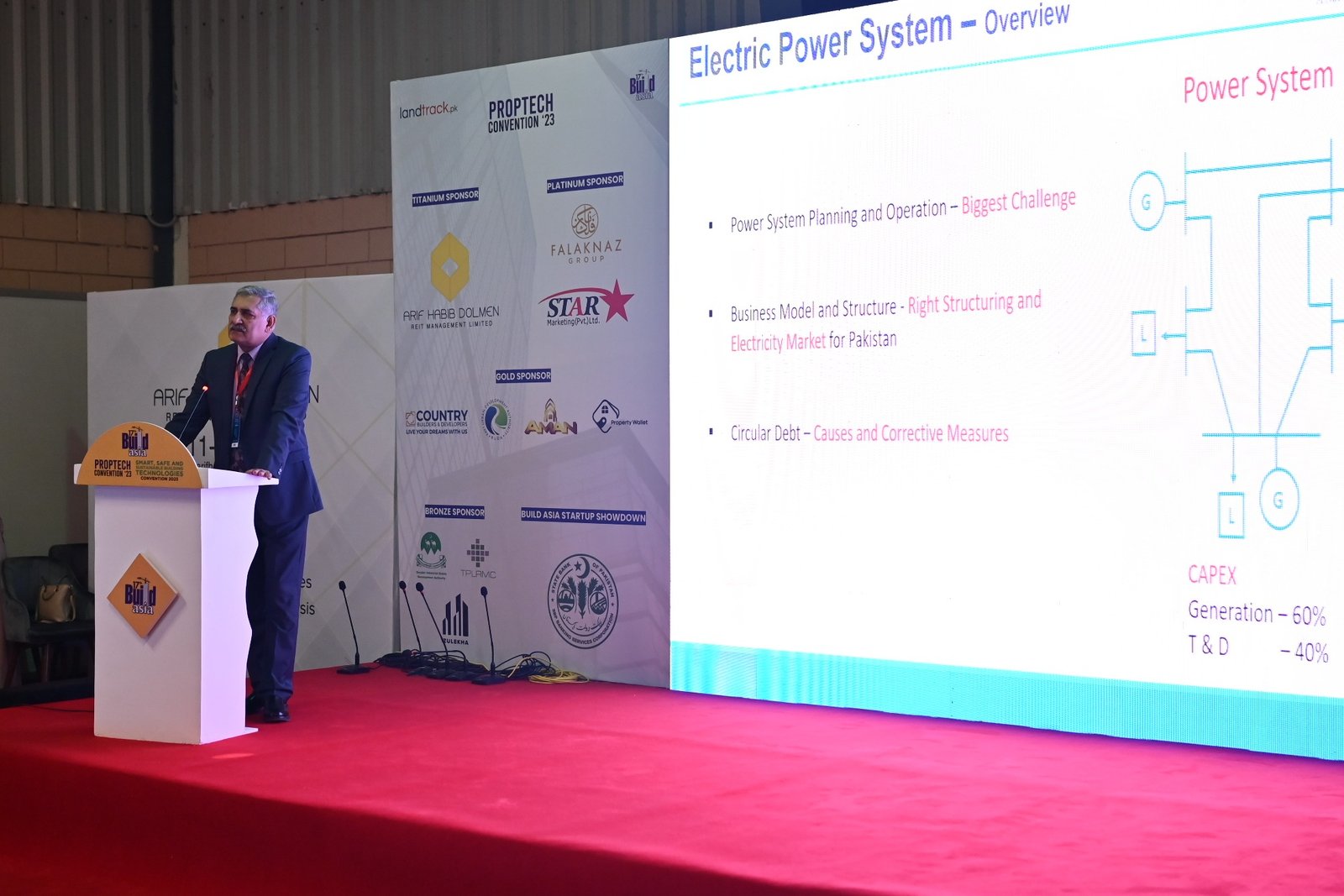Blogs
- Home
- Blogs

- Admin
- 0 Comments
Vision for Energy and Buildings
Initially, Dr. Fiaz Ahmad Chaudhry, Director at LUMS Energy Institute, addressed a critical aspect of the power system’s relationship with buildings at the Proptech & SmarTech Convention ’23.
Energy Systems and Building Impact:
He emphasized the interconnectedness of generators, transmission systems, and loads, with a special focus on how buildings significantly impact power system loads. Explaining further, Dr. Chaudhry revealed how modern structures contribute to the complexities of power demand and supply, especially in urban settings.
Challenges in Power Supply and Demand:
Moreover, Dr. Chaudhry delved into the intricacies of power supply mechanisms and demand management. He pointed out the lack of proper planning in the sector, leading to inefficiencies and financial burdens. Notably, he discussed how the existing infrastructure, though extensive, often fails to meet fluctuating demand effectively, especially during peak hours. This discrepancy highlights the need for more strategic and evidence-based decision-making in the power industry.
Sustainable Solutions and Efficiency:
Transitioning to solutions, Dr. Chaudhry advocated for structuring the power sector to improve sustainability and efficiency. He suggested adopting innovative approaches to building design and energy use, arguing that this could lead to significant energy savings and a reduction in the overall demand on the power grid. This approach not only benefits the power sector but also promotes environmental sustainability and cost-effectiveness.
Conclusion
Furthermore, Dr. Chaudhry emphasized the role of building design in the increasing energy demand. He highlighted that inefficient buildings, especially those with poor insulation, contribute substantially to the peak load, particularly for cooling purposes. Stressing the importance of efficient building designs, he suggested that adopting better construction methodologies and materials could drastically reduce energy consumption, thereby alleviating the stress on the power grid.
For a comprehensive understanding of Dr. Chaudhry’s insights into the power system and building dynamics, watch the full discussion here.

Leave A Comment